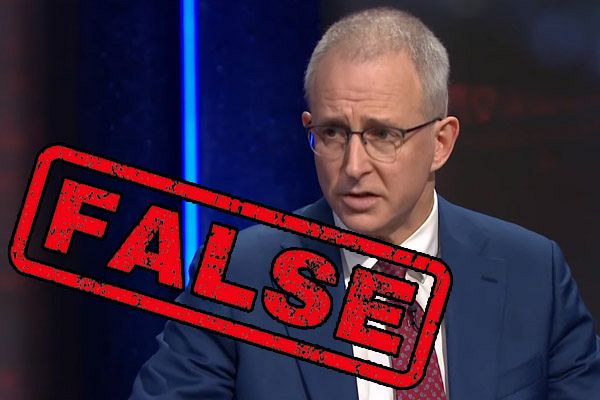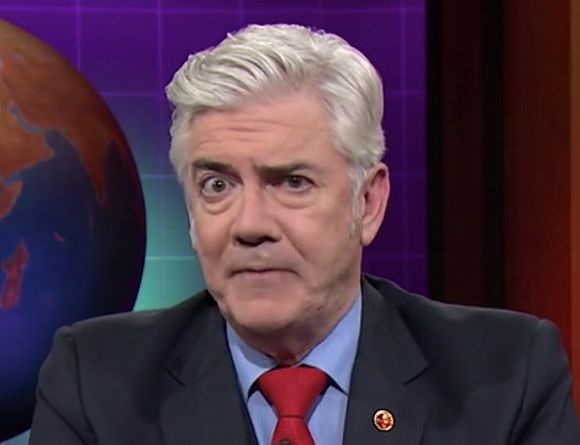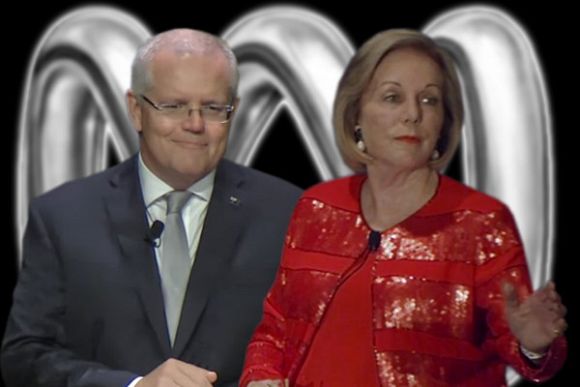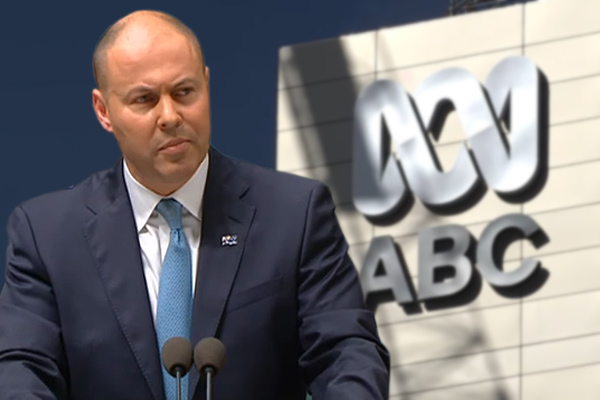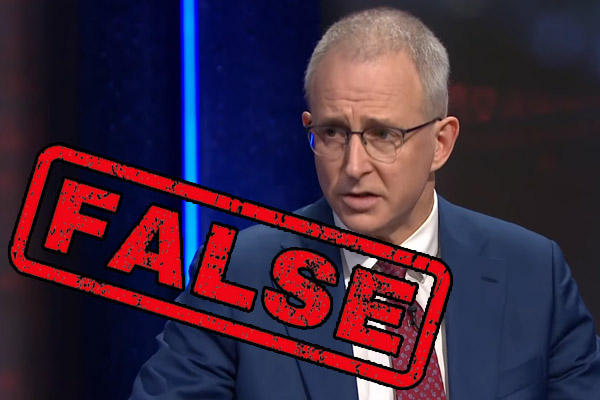Communications Minister Paul Fletcher claimed ABC funding has been rising yearly, a statement proven to be inaccurate, writes Ranald MacDonald.
LET ME TRY to simplify the rather wordy RMIT ABC Fact Check just released on the truth of claims and counter-claims over funding cuts.
The cautious headline is that the Government’s claims of “no cuts” is ‘misleading’.
I would say “blatantly dishonest” for the following reasons.
First, a simple analogy.
If a myopic economist, a political spin doctor or Alan Jones told you that over five years you had nothing to complain about if your take-home pay increased each year (though by, say, $1 a year), while in round terms the compounded cost of living had risen over the same period by 10%, you would think them all deluded.
Further, if they said others are worse off, you would say, “how relevant is that to me? I cannot pay my bills or educate the children”.
Somehow, the spin from the Coalition is that the ABC is well-funded and fortunate to be so despite shouldering extra responsibilities and achieving strong public support. And the commercial stations are doing it tough.
Deliberately confusing the picture (as Fact Check shows) is the inflation-adjusted transmission costs for the ABC average some $185 million a year to allow 48 non-metropolitan stations to be accessed around our vast continent, including iview, emergency services and four television stations.
So for ABC staff (and they have to occasionally be rewarded), program production and all other activities, the remaining ABC funding, which has reduced in real terms some 30% in the last three decades, has had to be stretched beyond the breaking point.
Hence staff cuts, BBC repeats and no ABC-produced TV entertainment programs except those done through independent companies where the ABC has no rights of repeats and where costs in the last three years have risen by 6.5%. Staff members are multitasking beyond what is reasonable.
The Department of Foreign Affairs and Trade defunded the Australia Network under Tony Abbott one year into a ten-year contract at the loss of some $20 million a year, disenfranchising millions of viewers and listeners internationally.
Related Articles
- Staff and unions need to take up the fight for the ABC
- The ABC is on the IPA's hit list
- ABC and SBS fail in their reporting on Bolivia coup
- Lies from both sides in the game of politics
- Privatising the ABC: The Liberals' secret agenda
The figures are clear and in the ABC’s Annual Report.
Total revenue over the last five years from the Government amounted to:
- 2015 — $1,063,215,000
- 2016 — $1,064,413,000
- 2017 — $1,036,090,000
- 2018 — $1,043,680,000
- 2019 — $1,045,911,000
And now there is the Morrison freeze for three years at a cost of $83.7 million — hence the announced reduction by ABC Managing Director David Anderson of up to a further 250 staff positions on top of the over 1,000 who have departed since the Abbott cuts of 2014.
As well, do not forget the increasing annual cost of transmission is incorporated in the total funding figure — so, upwards of $2 million a year are further taken from what is left for staff and production.
The RMIT ABC Fact Check is a most valuable document and closer reading of this and the ABC Annual Reports, plus recent statements from the ABC Chair and Managing Director will, I believe, support the following conclusion.
The Australian Broadcasting Corporation is being weakened maliciously and systematically, just when it is needed most in democratic Australia.
Further, it should not and cannot be treated as just another government department.
Under the 1983 ABC Act, the Corporation was established as a statutory body, independent of government and mandated to service all Australians as set out in its Charter.
Ranald Macdonald is the founder of the Australian Press Council and former CEO and editor in chief of The Age.
 This work is licensed under a Creative Commons Attribution-NonCommercial-NoDerivs 3.0 Australia License
This work is licensed under a Creative Commons Attribution-NonCommercial-NoDerivs 3.0 Australia License
Support independent journalism Subscribe to IA.



